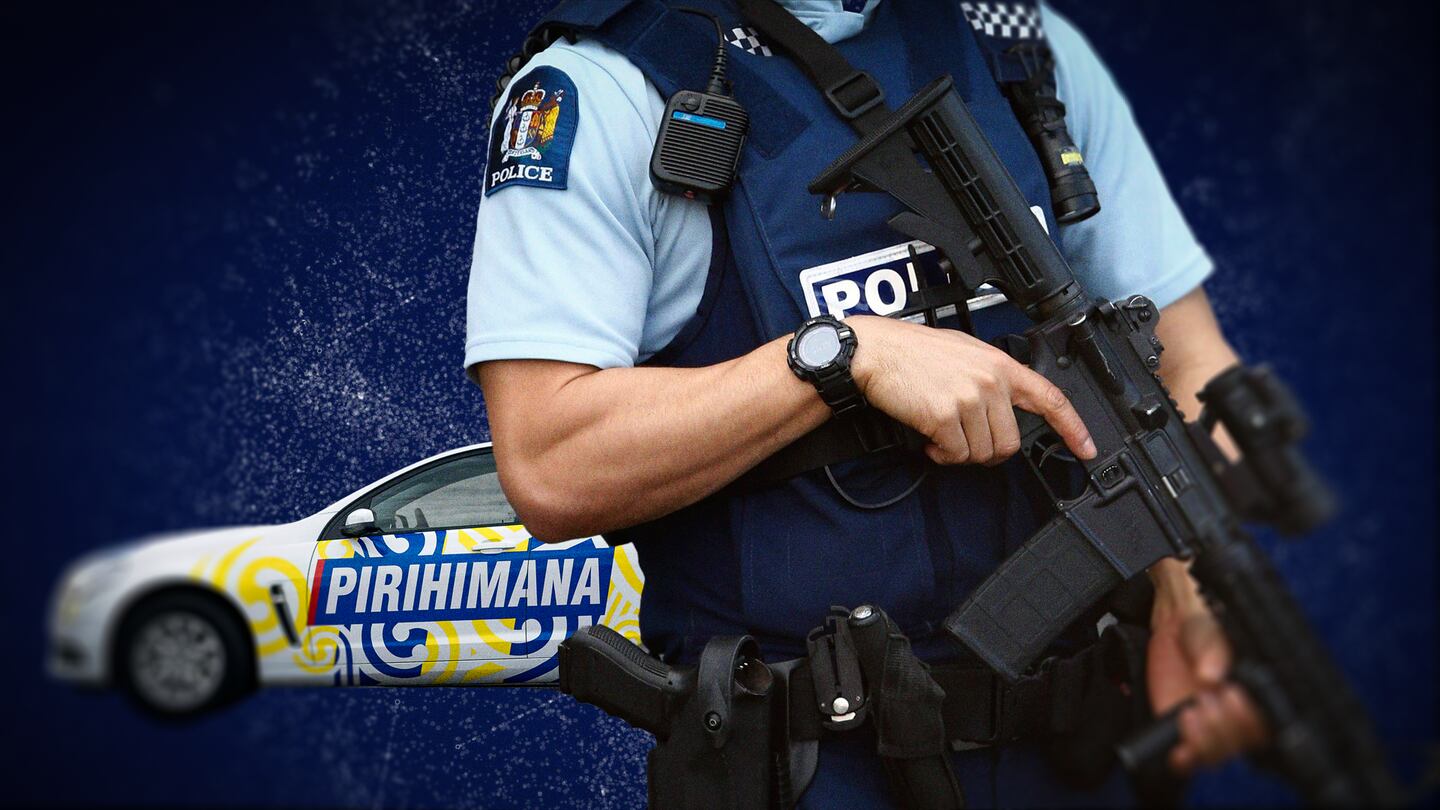The first phase of an independent research project offering unprecedented access to New Zealand Police data confirmed what many Māori may already know; there are disparities in how Police interact with Māori, other ethnic communities, and disabled people.
While many findings were unsurprising to researchers, they say it lays the foundation for an Aotearoa that is more equitably policed.
The report, commissioned by the New Zealand Police itself, details various levels of bias and experiences.
Swipe for a summary of the report’s initial findings.
0 of 4
Auckland University of Technology’s Dean of Law and the panel’s chair Professor Khylee Quince says the findings were already largely known to many Māori.
“Many of those complaints come from Iwi Māori. There are feelings of a lack of safety from females who call the Police for Family Violence or family harm incidents.”
She said the findings of the report should be followed through, irrespective of political persuasions.
“This is not about, ‘does this police commissioner support this, does this Minister support this.’ It’s about retraining and reorienting a really huge organisation, nearly 15,000 officers, to make sure that they are fit for purpose to Police the Aotearoa of today but also the Aotearoa of 2040, 200 years since Te Tiriti was signed.”
Dr Catherine Leonard, Managing Director of Ihi Research, said Police were collaborative when pulling research together.
“They were really gracious in working with us, they were really open, they were prepared to have difficult conversations about data and to also look at solutions.”
John Leonard, Ihi Research Director, echoed Quine’s sentiments.
“I don’t think there was too much that surprised us in that data. The thing that did surprise us was the prevalence, particularly in the use of force of people who are in mental distress. That’s a system thing when you’ve got Police who are generally a forced response responding to a health issue.”
In 2020, Police Commissioner Andrew Coster commissioned the Understanding Policing Delivery programme following the death ofGeorge Floyd, the ‘Black Lives Matter’ movement, and policing in New Zealand with the Waitangi Tribunal Justice System Inquiry and Abuse in Care Inquiry.
Tā Kim Workman chaired the independent panel to monitor police data and systems and to provide advice back to the Police, before Professor Khylee Quince took over as chair.
Its findings come amid calls for police reforms the world over, as well as growing dissatisfaction among te iwi Māori with Ngā Pirhimana o Aotearoa / New Zealand Police.
An exclusive research poll commissioned by The Hui in 2022 revealed 72 per cent of Māori believe Aotearoa’s police are racist in some way.
The report’s findings at a glance are below.
Wāhine Māori
Wāhine Māori were disproportionately represented in complaints about unwarranted searches, with many feeling their rights were violated, especially when children were present. Additionally, some women reported experiencing misogynistic behaviour during police interactions.
Complaints from women in family harm situations were common, with 83 per cent coming from females who felt unsafe or dismissed by the Police. Concerns were also raised about the use of force, particularly TASERs, in these incidents, with questions about whether it was necessary.
Tāne Māori
Tāne Māori were almost 10 times more likely to experience a TASER discharge than females, with over 85 per cent of all tactical operations involving men. In some cases, men were TASERed for non-compliance or to gain control, even when no physical threat or weapon was present.
Youth aged 14-17 who were TASERed were all Māori males, with three separate incidents involving two 14-year-olds. Of the 54 complaints about police use of force, 66 per cent came from men, with Māori and Pacific peoples more likely to report serious levels of force, including pain compliance techniques.
Despite this, Māori youth were less likely to lodge complaints, with only nine reports highlighting inappropriate language or force.
Disability and neurodiverse communities
Complaints pointed out some serious issues with how police handle interactions with neurodiverse or disabled people, especially those who have trouble hearing or communicating. Many felt the Police just didn’t get their needs and showed a clear bias against diversity.
It’s hard to track how often disabled people face the police force since disabilities and mental health issues are coded the same way.
Some people had trouble understanding police instructions due to their disability, raising concerns about using force on those who can’t follow directions. There were also complaints from two people who felt their disabilities were wrongly interpreted as drunkenness or disorderliness.
Mental distress
Around 40 per cent of people noted in Tactical Operations Reports (TOR) were identified as experiencing mental distress, which also accounted for 42 per cent of TASER deployments and 54 per cent of TASER discharges. Those in mental distress were often seen as non-compliant rather than unwell, leading to harsher responses from Police.
Complaints about Police interactions with individuals in mental distress or with disabilities often highlighted poor treatment and a lack of appropriate training. Many felt the Police should have involved mental health services or that interactions worsened their mental health conditions.
What erodes trust in Police?
Data shows that police officers often go above and beyond in stressful situations, such as mental health crises or sudden deaths. Public feedback highlights their genuine care and professionalism, with people appreciating acts of kindness like taking family members to a hospital or providing information on counselling services.
Key factors in successful de-escalation include maintaining a calm demeanour, effective and respectful communication, engaging with empathy, and respecting personal space. These behaviours help build rapport and reduce tensions, preventing situations from escalating.
However, there are notable issues that erode trust. Complaints frequently mention unprofessional and disrespectful behaviour, including rude or aggressive comments and language, often linked to feelings of being racially profiled or targeted. The behaviour of some officers, such as mocking, aggressive engagement, and conflicting demands, can escalate rather than de-escalate situations.
Analysis of TASER camera footage shows that effective de-escalation techniques, when applied, can prevent the need for TASER discharges. Officers who use calm communication and tactical skills in tense situations achieve better outcomes.
Feedback from Māori highlighted the importance of respectful interactions and the value of police efforts during crises, such as extreme weather events. These responses underscore the significant role of the Police in community support and the appreciation for their positive actions during emergencies.








